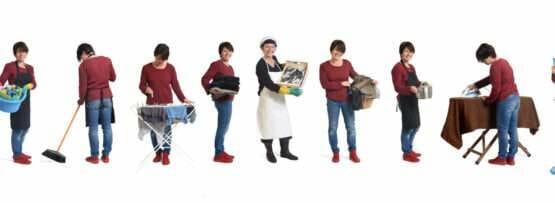少し前、アメリカから学生達が日本へやってきて、その案内役を任せられたことがあります。私自身は、秋葉原や渋谷などの繁華街は余りよく知らないので、下町観光をすることになりました。
彼らに、日本のお寺や五重塔、仏像などの魅力を伝えたかったのです。私の意図に反して、彼らが最も興味を示したのが、「おみくじ」でした。全員がおみくじを引いていました。
そのおみくじの文面は、日本語だけでなく英語にも翻訳されていました。このような文化は海外には無いのかもしれませんね。
さて、サオリがアメリカからやってきたジョンを、浅草観光に連れて行こうとしています。早速彼らの会話を覗いてみましょう。
レッスンの内容
★会話★
John and Saori are talking.
John: Can you show me around the town?
Saori: What are you interested in?
John: I’m interested in Tokyo’s traditional districts.
Saori: That means “Shitamachi” in Japanese.
John: “Shitamachi”, what does it mean?
Saori: They are the traditional residential districts.
Asakusa is one of the most famous traditional districts in Tokyo.
John: Can you explain about that town in more detail?
Saori: You can see Senso-ji, which is the most venerable temple in Tokyo.
John: I’ve heard that name.
Saori: It was built in the 7th century.
There is a golden image of Kannon in that temple.
John: I’ve seen a picture of the gate with a huge red lantern.
Saori: Oh, that is “Kaminari-mon”.
“Kaminari-mon” means “the Thunder Gate”.
Two statues stand at both sides of the gate.
This gate is the symbol of Asakusa.
John: Sounds interesting!
Can I get some traditional Japanese goods there?
Saori: Yes, of course.
There is Nakamise-dori Shopping Arcade.
It leads to the main gate of the temple.
There are many stores that sell various kinds of souvenirs.
John: Sounds great!
I’d love to visit there.
Saori: Shall we visit there this weekend?
John: Why not?
★ワンポイント★
show around~:「~を案内する」
be interested in~:「~に興味がある」
traditional:「伝統的な」
district:「地域」「地区」
mean:「意味する」
in Japanese:「日本語では」
residential:「住宅の」
one of~:「~のひとつ」
the most famous:「最も有名な」
explain:「説明をする」
in more detail:「もっと詳しく」
venerable:「古びて神々しい」「尊ぶべき」
have heard:現在完了形で「聞いたことがある」という経験を表す。heardはhearの過去分詞。
built:build「建てる」の過去分詞。
image:「像」「彫像」「偶像」「聖像」
have seen:現在完了形で「見たことがある」。seenはseeの過去分詞。
with~:「~のある」
huge:「巨大な」
lantern:「ちょうちん」
statue:「像」
at both sides of~:「~の両側に」
thunder:「雷」
gate:「門」
arcade:「アーケード」屋根付きの街路で通例両側に店が並ぶ。
various kinds of~:「いろいろな種類の~」
souvenirs:「おみやげ」
visit:「訪問する」「訪ねる」
this weekend:「今週末」
Why not?:相手の提案に対して、「そうしよう」の意味。

★和訳★
John and Saori are talking.
(ジョンとサオリが話をしている。)
John: Can you show me around the town?
(街を案内してくれる?)
Saori: What are you interested in?
(あなたは何に興味があるの?)
John: I’m interested in Tokyo’s traditional districts.
(ぼくは、東京の伝統的な場所に興味がある。)
Saori: That means “Shitamachi” in Japanese.
(それは日本語の「下町」ということね。)
John: “Shitamachi”, what does it mean?
(「下町」、それってどういうこと?)
Saori: They are the traditional residential districts.
(それは、伝統的な居住地区のことよ。)
Asakusa is one of the most famous traditional districts in Tokyo.
(東京では、浅草が一番有名な伝統的な場所の一つよ。)
John: Can you explain about that town in more detail?
(その街のことについて、詳しく説明してくれる?)
Saori: You can see Senso-ji, which is the most venerable temple in Tokyo.
(浅草寺を見ることが出来るわ。それは、東京で一番由緒ある寺なのよ。)
John: I’ve heard that name.
(その名前は聞いたことがあるよ。)
Saori: It was built in the 7th century.
(7世紀に建てられたの。)
There is a golden image of Kannon in that temple.
(その寺には、金色の観音様がまつられているの。)
John: I’ve seen a picture of the gate with a huge red lantern.
(巨大な赤いちょうちんのある門を写真で見たことがあるよ。)
Saori: Oh, that is “Kaminari-mon”.
(ああ、それは「雷門」よ。)
“Kaminari-mon” means “the Thunder Gate”.
(「雷門」は、「Thunder Gate」という意味よ。)
Two statues stand at both sides of the gate.
(門の両側に2体の像が立っているの。)
This gate is the symbol of Asakusa.
(これが、浅草のシンボルよ。)
John: Sounds interesting!
(面白いね!)
Can I get some traditional Japanese goods there?
(そこでは伝統的な日本の物を買うことが出来る?)
Saori: Yes, of course.(ええ、もちろん。)
There is Nakamise-dori Shopping Arcade.
(仲見世通りショッピング・アーケードがあるわ。)
It leads to the main gate of the temple.
(そのアーケードは寺の正門に繋がっているの。)
There are many stores that sell various kinds of souvenirs.
(いろいろな種類のお土産を売る店がたくさんあるわ。)
John: Sounds great!(良さそうだね!)
I’d love to visit there.(是非そこへ行きたいな。)
Saori: Shall we visit there this weekend?
(今週末、そこへ行きましょうか?)
John: Why not?(そうしよう。)
















